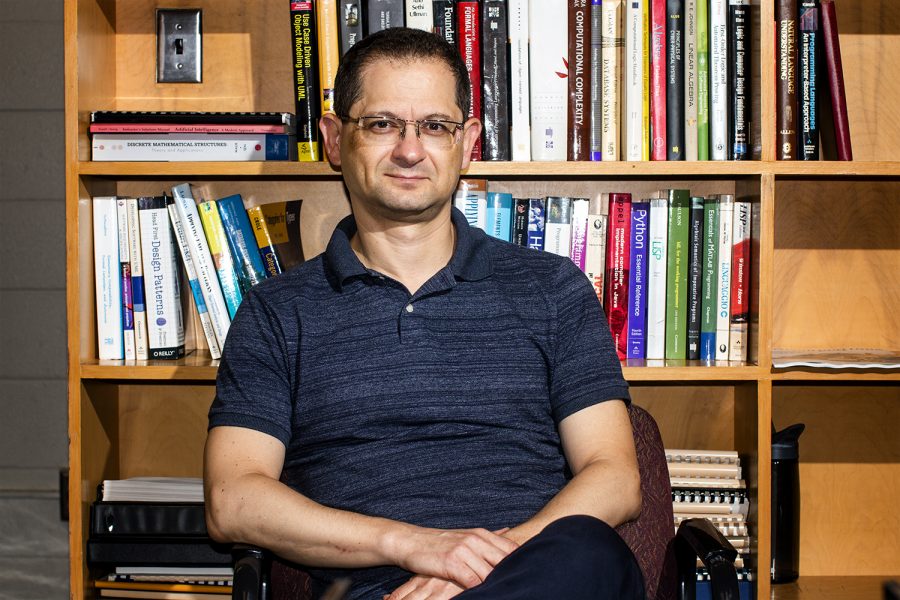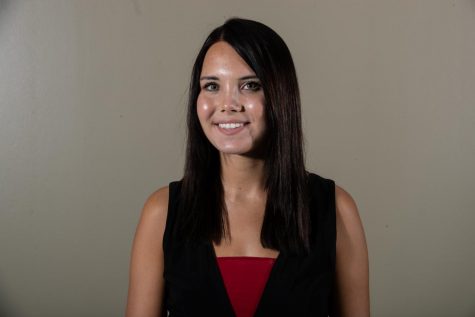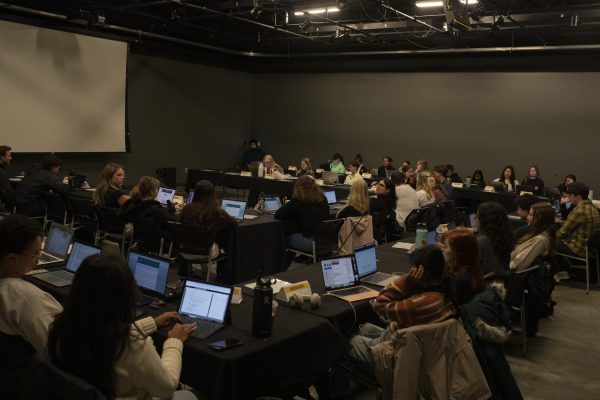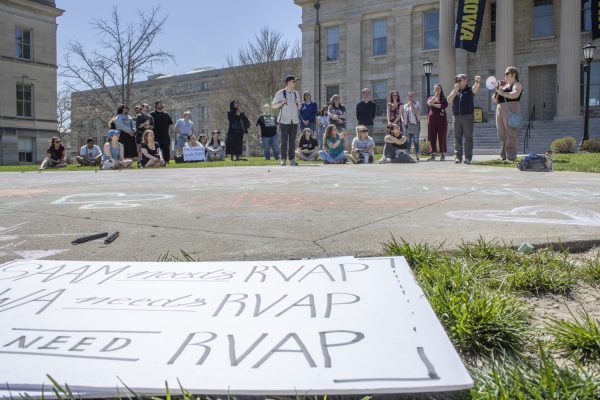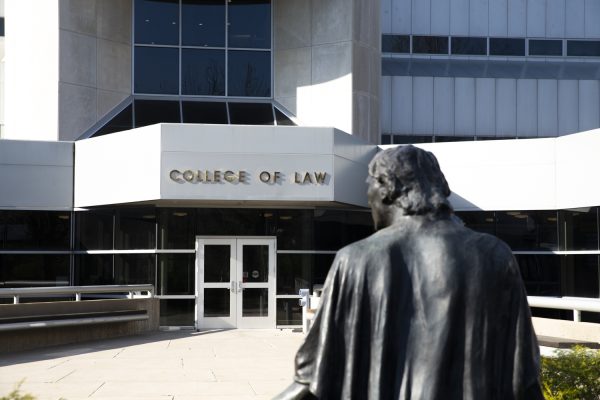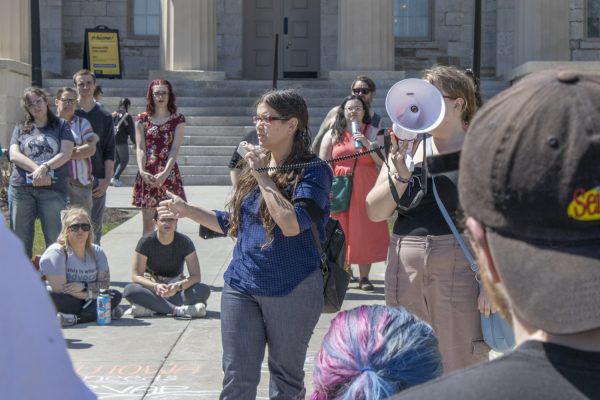Researchers at UI receive grant for cybersecurity research
UI team of researchers collaborate on innovative research in cyber security.
UI professor Cesare Tinelli poses for a portrait in the Seamans Center on Monday, Aug. 27, 2018. Professor Tinelli was the principal investigator for the cybersecurity project.
August 27, 2018
University of Iowa researchers, in collaboration with General Electric, were recently awarded a four-year, $809,000 grant for innovative work researching cybersecurity.
The project, led by UI computer science Professor Cesare Tinelli and Assistant Professor Omar Chowdhury, aims to develop new approaches and tools to analyze the resiliency of software systems against cybersecurity threats. Then, the team would propose solutions to combat the threats.
The tools developed will use artificial intelligence to detect potential problems in software-system design. Currently, this kind of analysis is done manually or with techniques that do not rely on latest advances in automated reasoning.
“It’s a very exciting project,” Tinelli said. “We’ve made a lot of progress in this in the last 10 years or so. There’s a lot of excitement of potential that these methods could have to address issues in society like cybersecurity.”
The project came from a collaboration established with GE Global Research, which facilitated the project by giving the UI some seed funding. GE had the opportunity to learn about the research projects worked on by the university, and the GE researchers discussed possible collaborations before deciding.
The grant was given to the project by the Defense Advanced Research Projects Agency.
DARPA finances the research into technologies primarily for military use, although some of its research ends up benefiting the public, such as early basic internet and autonomous vehicles.
The university also sent a “parallel proposal” to United Technologies, another multinational conglomerate interested in cybersecurity. This was geared toward another aspect of the project — the communication among all the different project components.
Lots of systems, by having software in them, are now being attacked by hackers, enemies, and all sorts of malicious people. It’s extremely important to develop software that is resilient to cyber attacks.
— Cesare Tinelli
The program’s code is analyzed by a tool, which then shows how a piece of technology is vulnerable to cyber attacks and suggests repairs.
“Lots of systems, by having software in them, are now being attacked by hackers, enemies, and all sorts of malicious people,” Tinelli said. “It’s extremely important to develop software that is resilient to cyber attacks.”
Ph.D. student Daniel Yahyazadeh, who works on the CRV project, aims to find problems in a system’s code in the design stage.
“In the software development life cycle, it is very important to find the bugs and any problems at the very top level of this life cycle,” he said. “Because if you can’t catch the incorrectness dysfunctionalities or bugs, when it moves down to implementation, it can be catastrophic.”
Daniel Larraz, a postdoctoral research scholar, is the developer of the project’s Kind 2 tool, which is used to prove automatically the absence of certain security vulnerabilities in the design model.
“The number and importance of cyber attacks are both increasing making the design of cyber resilient systems a necessity to protect safety-critical systems like unmanned aerial vehicles,” Larraz said in an email to The Daily Iowan. “I think fundings like this DARPA grant are very important for the development of new techniques and tools that can help designers to build more and more secure safety-critical systems.”



